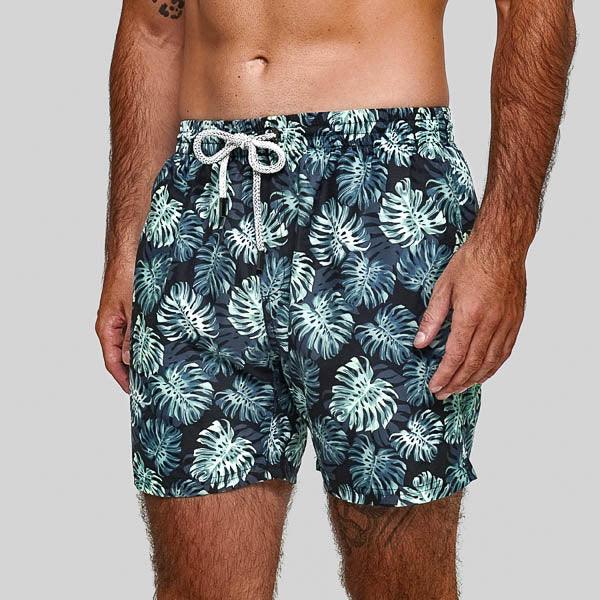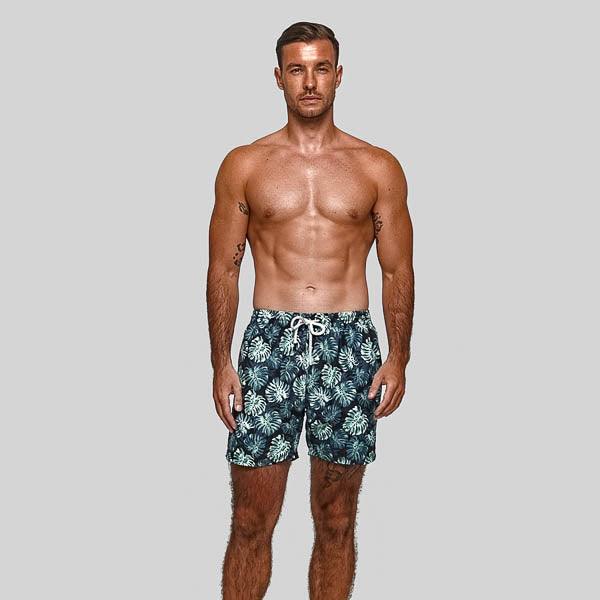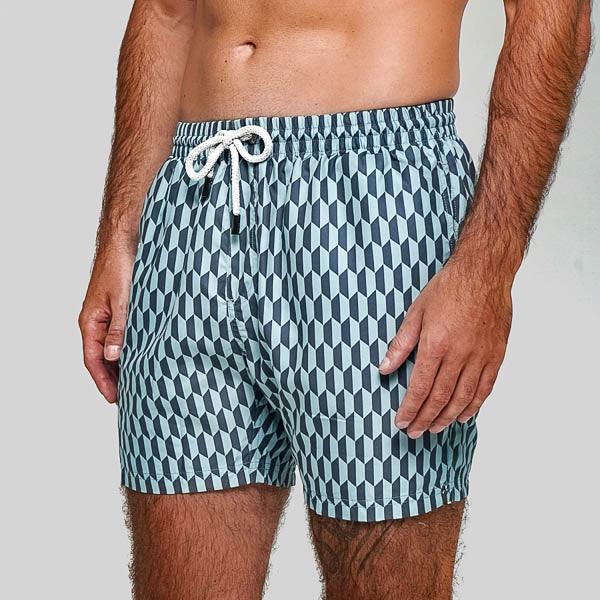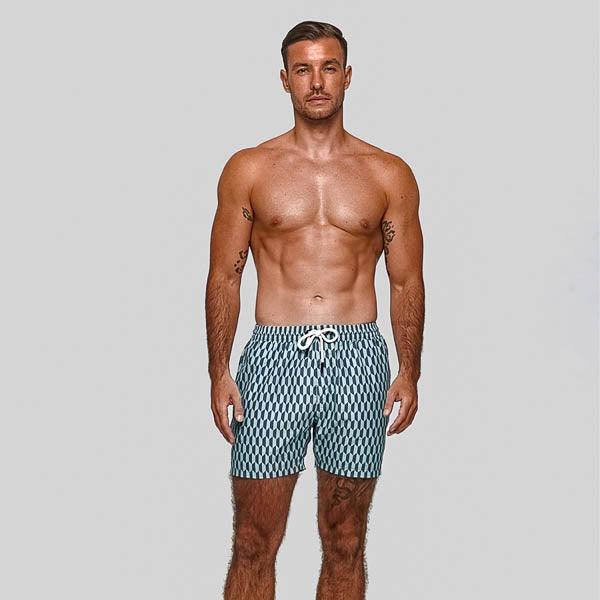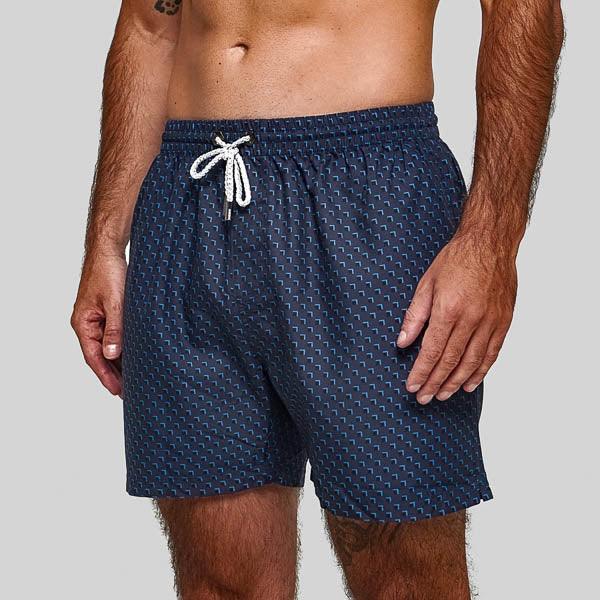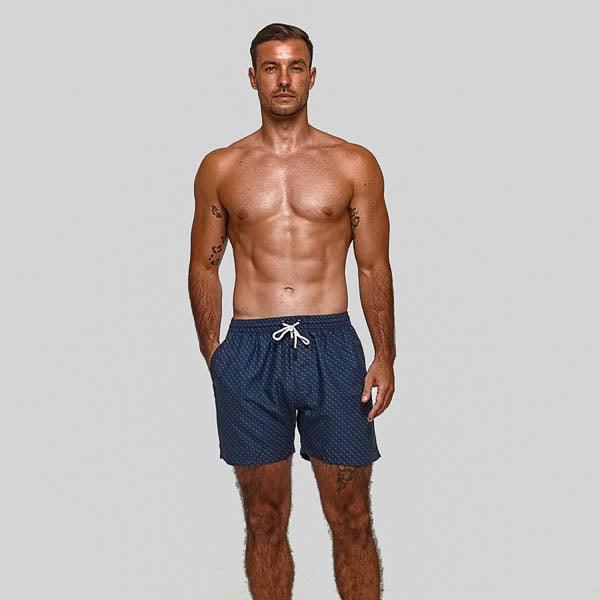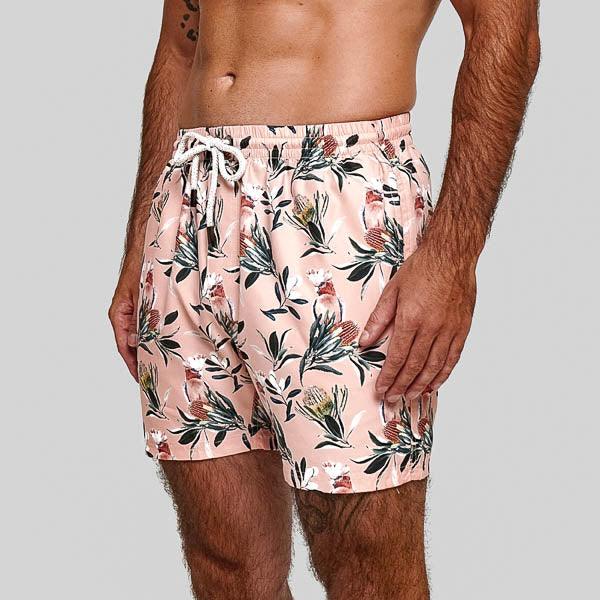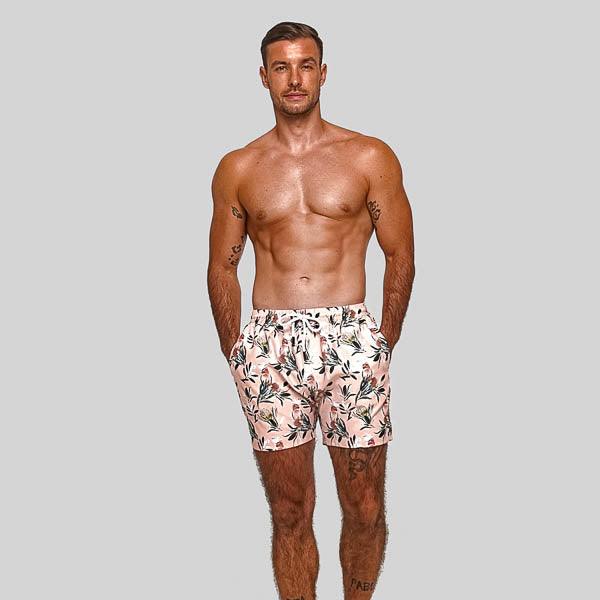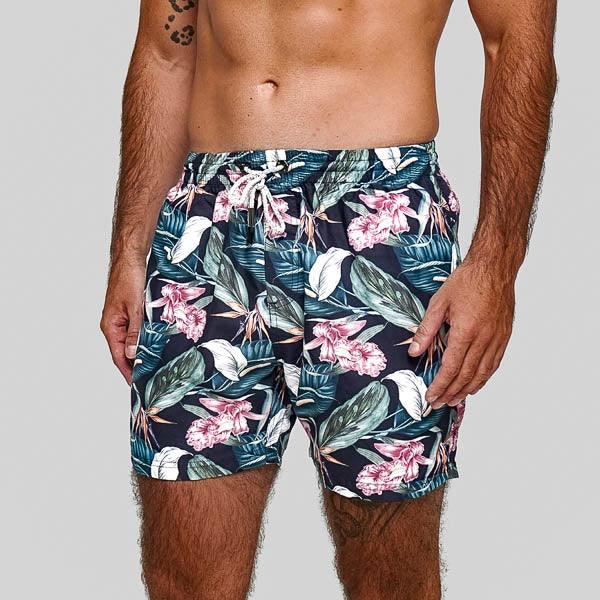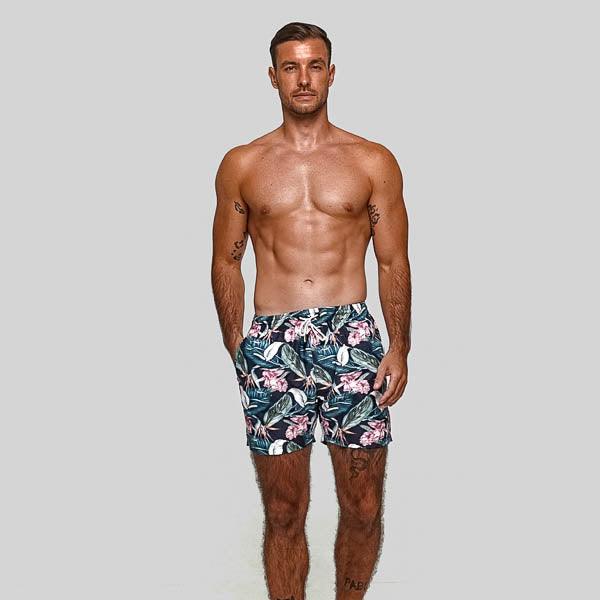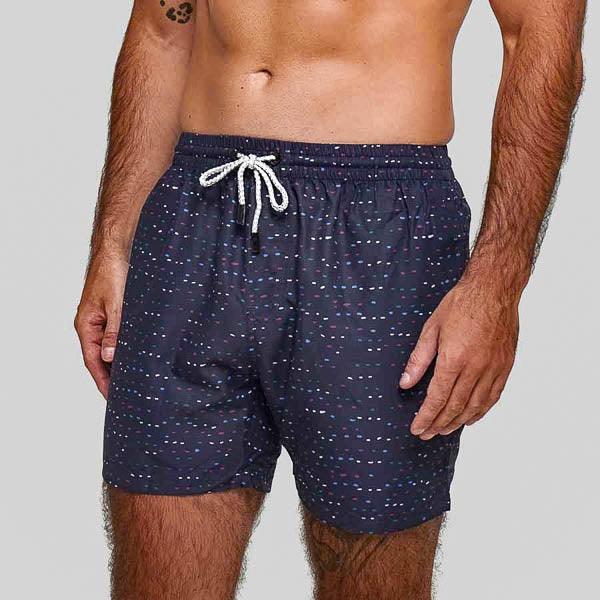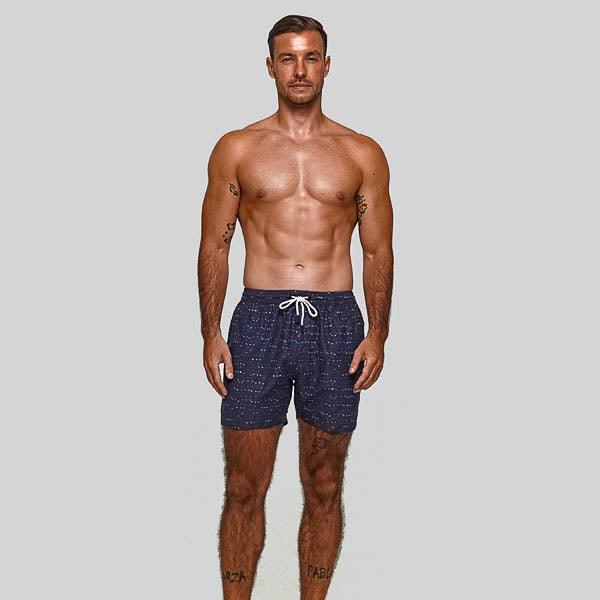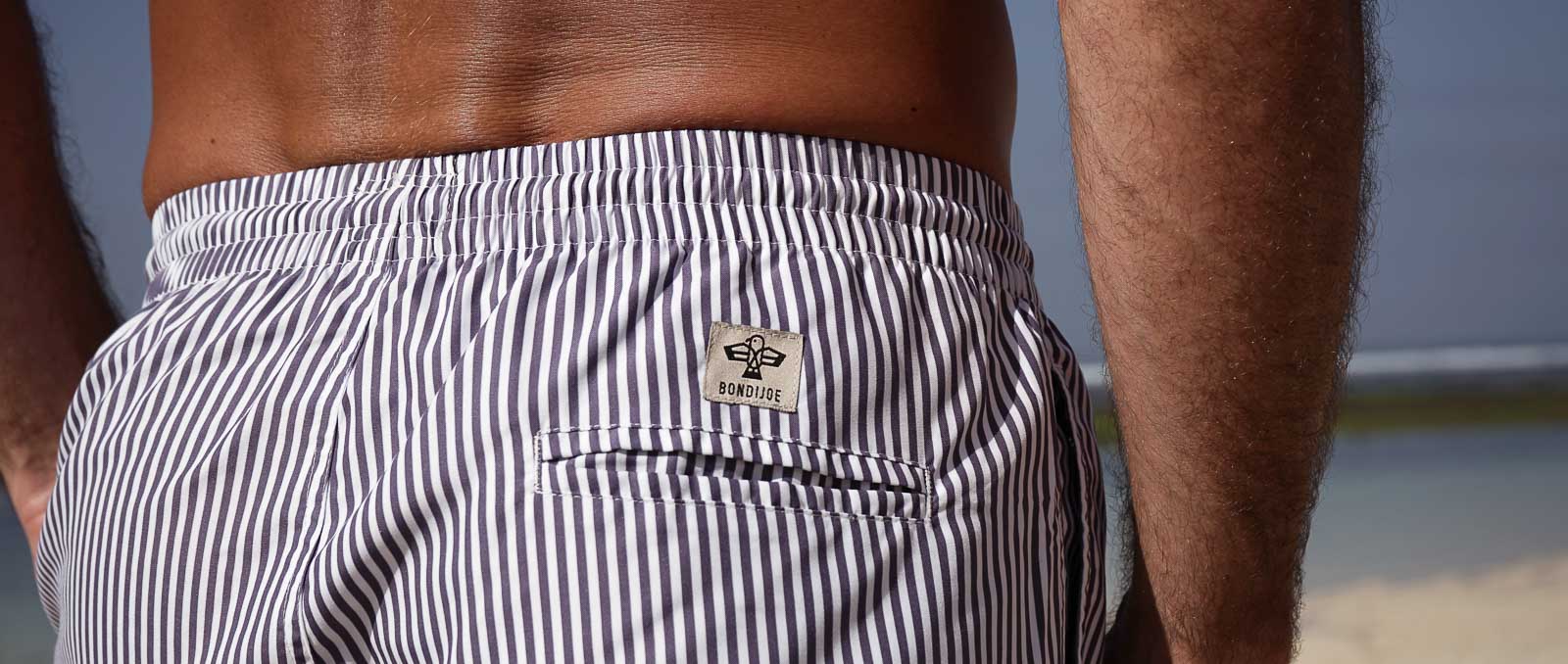Choosing the right swimwear size is essential for comfort, style, and confidence at the beach or pool. This guide will help you find the perfect fit by covering key factors like measurements, styles, and tips for selecting the ideal swimwear size. With the right guidance, you’ll look and feel your best all summer long.
Understanding Swimwear Styles
Board Shorts
Board shorts are a popular choice due to their relaxed fit and longer length. They typically sit at or just above the knee and are perfect for both beach and water activities.
Key Features:
- Lace-up waistbands
- No inner lining
- Quick-drying fabric
Swim Trunks
Mens swim trunks offer a classic mid-thigh length, making them versatile and flattering for most body types. They often have an elastic waistband and a supportive mesh lining.
Key Features:
- Elastic waistbands
- Inner mesh lining
- Variety of colors and patterns
Swim Briefs
Swim briefs provide a snug fit and minimal coverage, making them ideal for swimming and sunbathing. They are a popular choice among athletes and those who prefer a sleek, streamlined look.
Key Features:
- Low-rise waist
- Minimal coverage
- Snug, supportive fit
Jammers
Jammers are similar to swim briefs but offer more coverage, extending to the knee. They provide a tight fit and are often used by competitive swimmers for their streamlined design.
Key Features:
- Knee-length coverage
- Tight, compression fit
- Chlorine-resistant fabric
Taking Accurate Measurements
Waist Measurement
To find the perfect waist size, wrap a flexible measuring tape around your natural waistline, usually located just above your hip bones. Ensure the tape is snug but not too tight.
Hip Measurement
Measure around the fullest part of your hips, keeping the tape parallel to the ground. This measurement helps ensure a comfortable fit around the hips and thighs.
Inseam Measurement
For swimwear like board shorts or jammers, measure from the top of your inner thigh to the desired length. This helps determine how long you want the shorts to be.
Choosing the Right Size Based on Body Type
Athletic Build
Men with an athletic build often benefit from swim briefs or trunks, which highlight their physique. Look for options with elastic waistbands for added comfort and flexibility.
Tall and Slim
For taller, slimmer men, board shorts or longer swim trunks are great options. These styles provide balance and coverage, enhancing your overall look.
Stocky Build
Men with a stockier build should opt for mid-length swim trunks or board shorts. Look for designs with adjustable waistbands to ensure a comfortable, flattering fit.
Finding the Perfect Fit
Comfort and Mobility
The perfect swimwear should provide both comfort and ease of movement. Make sure the waistband is snug without being too tight, and that the fabric allows for easy mobility in the water.
Checking the Lining
For swim trunks and briefs, check the inner lining for comfort and support. Mesh linings offer breathability and help prevent chafing during extended wear.
Trying on Swimwear
Whenever possible, try on swimwear before purchasing. Move around to ensure the fit feels right, and that the swimwear doesn’t ride up or slip down.
Common Sizing Challenges
Variability Between Brands
Swimwear sizes can vary significantly between brands. Always check the size chart provided by the manufacturer and compare it with your measurements for the best fit.
Dealing with In-Between Sizes
If you find yourself between sizes, consider the swimwear’s material and style. Opt for styles with adjustable features, such as drawstrings or elastic waistbands, to accommodate slight size variations.
Tips for Choosing the Right Size
Refer to Size Charts
Most brands offer detailed size charts that correlate measurements to sizes. Use these charts as a guide, but remember that trying on swimwear is the best way to determine the right fit.
Consider Fabric Stretch
Swimwear made from materials like spandex offers more stretch and flexibility. If you prefer a tighter fit, consider choosing a slightly smaller size, keeping in mind the fabric’s stretch capacity.
Think About Activities
Consider the activities you’ll be doing while wearing the swimwear. For more active pursuits, such as swimming laps or playing beach volleyball, opt for a tighter fit to ensure the swimwear stays in place.
Maintaining Your Swimwear
Rinse After Each Use
Rinse your swimwear in cold water after each use to remove salt, chlorine, and sunscreen. This helps preserve the fabric and elasticity, ensuring a longer lifespan.
Avoid Machine Drying
Air dry your swimwear in a shaded area instead of using a dryer. High heat can damage the fabric and cause fading. Lay the swimwear flat to dry to maintain its shape.
Conclusion
Choosing the perfect men’s swimwear size involves understanding your body type, taking accurate measurements, and considering your activities. By following these tips and using size charts, you can find swimwear that fits comfortably and looks great. Whether you prefer board shorts, trunks, briefs, or jammers, the right fit will enhance your beach or pool experience, allowing you to enjoy your time in the water with confidence. Be sure to check out our other guides to bying mens swim trunks.
FAQs
1. How do I measure my waist for swimwear?
- Wrap a flexible measuring tape around your natural waistline, usually just above the hip bones. Ensure the tape is snug but not too tight.
2. What should I consider when choosing swimwear for an athletic build?
- Swim briefs or trunks are ideal, as they highlight your physique. Look for options with elastic waistbands for added comfort.
3. Are board shorts suitable for tall men?
- Yes, board shorts are great for tall men, providing balance and coverage. Look for longer lengths that complement your height.
4. How can I ensure my swimwear fits comfortably?
- Check that the waistband is snug without being too tight, and that the fabric allows for easy mobility. Try on the swimwear to ensure it feels right.
5. What if I’m between sizes in swimwear?
- Opt for styles with adjustable features, such as drawstrings or elastic waistbands. Consider the swimwear’s material and stretch capacity.
6. How should I care for my swimwear?
- Rinse after each use, avoid harsh detergents, and air dry in a shaded area. These steps will help maintain the fabric and elasticity of your swimwear.



